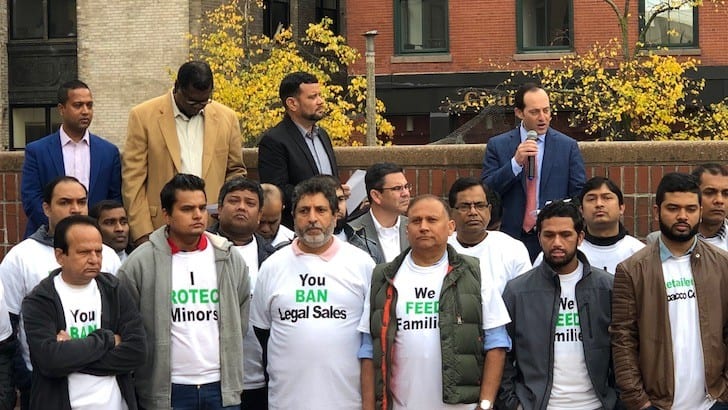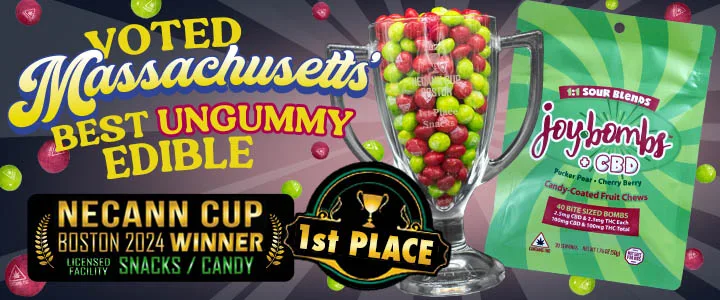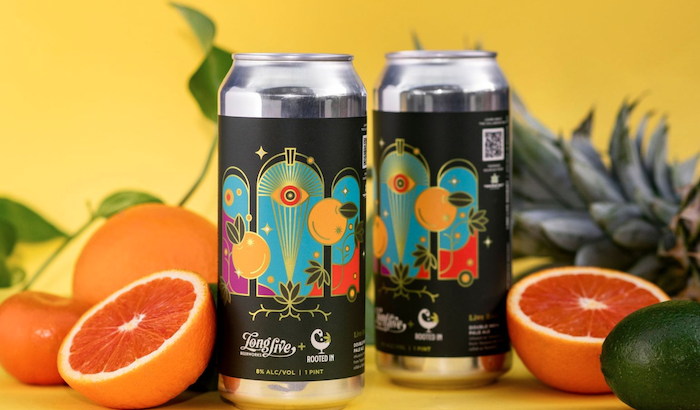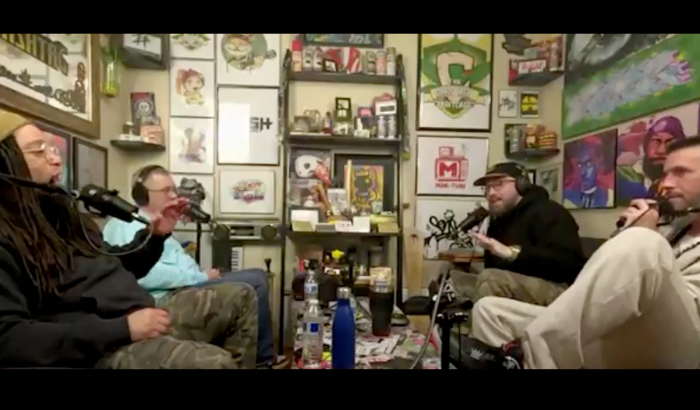
In considering the Massachusetts vape ban, which has been in place for more than a month at this point, it can be difficult to grasp the vast number of different stakeholder groups Gov. Charlie Baker screwed on a whim. There are cannabis consumers who had grown accustomed to visiting local dispensaries for a convenient cartridge every now and again, as well as former smokers who rely on e-cigs, and of course the retailers, many of whom have already been forced to close, with some even being tracked by authorities to make sure they’re not moving product out the rear.
While some Bay State convenience stores sold cigarette vape products before the temporary ban was put in place, damn near all of them sell menthol cigarettes, which are also now squarely in the sights of lawmakers on Beacon Hill. And so with e-cig sales losses already mounting, last week more than 100 members of the Boston Convenience Store Owners Association and the New England Convenience Store and Energy Marketers Association rallied on Boston City Hall Plaza to protest yet another attack on their businesses—the sought ban on convenience store sales of flavored tobacco, defined in proposed Massachusetts Senate Bill S.1279 thusly:
“Characterizing Flavor”, means a distinguishable taste or aroma, other than the taste or aroma of tobacco, imparted or detectable either prior to or during consumption of a tobacco product or component part thereof, including but not limited to, a taste or aroma relating to any fruit, chocolate, vanilla, honey, candy, cocoa, dessert, alcoholic beverage, menthol, mint, wintergreen, herb or spice; provided, however, that no tobacco product shall be determined to have a characterizing flavor solely because of the provision of ingredient information or the use of additives or flavorings that do not contribute to the distinguishable taste or aroma of the product.
Arguing for added regulations, lawmakers and their supporting nanny state reactionaries have cherry-picked multiple damning statistics. Prohibitionists have also conflated different vape products and potential problems that may or may not be landing (a relatively small number of) people in morgues. But whether the embattled Juul and its pods are the primary culprit, or if black market cannabis vape tanks are to blame, as has also been suggested, none of it has anything to do with menthol cigarettes. Or at least it didn’t until legislators filed bills in the Senate and House.
In response to so much superstition, at the time of this writing, members of BCSOA and NECSEMA planned to return to Boston again on Wednesday, this time for a demonstration at the State House. In addition to the obvious threat that the pending proposal and lower tobacco sales pose to their businesses, owners pointed out how, in a lot of cases, they’re not only in the Newport and Marlboro trade, but also provide critical supplies in food deserts.
“Massachusetts convenience stores are too often taken for granted,” Jon Shaer, executive director for NECSEMA, said in a statement. “Throughout the state, these stores provide the products and services their neighbors need when they need them most and are responsible for the collection and remittance of a significant amount of the state’s tax revenue through the sale of items such as gasoline, lottery, and tobacco.
“Can you imagine a day without your local convenience store?”
Corneal Allen of the BCSOA acknowledged the elephant in the room.
“City and state leaders must reject this racist segregation-era policy,” Allen said. “The ban on menthol cigarettes sends a message to all blacks and minorities in Boston that they aren’t smart enough to choose, but white people are. Thanks but no thanks.”
Similar attempts to banish menthols to the storage closet with the leftover cases of Four Loko have already led to rifts at the municipal level. In July, Cumberland Farms, which has more than 200 convenience stores in Mass, sued six boards of health including Somerville’s, arguing the local regulations “have created anti-competitive marketplaces that grant monopolies to specialty stores like smoke shops and smoking bars.” Those lawsuits continue; in the meantime, since a court denied an injunction that would have allowed Cumberland Farms to continue with business as usual in those locales during proceedings, it’s prohibited from doing so.
To drive home what seems to be another point so obvious that it is no surprise leaders on Beacon Hill don’t realize or care to comprehend it, BCSOA and NECSEMA tapped Richard Marianos, a retired assistant director at the Department of Alcohol, Tobacco and Firearms, to school the public on how this kind of legislation will inevitably fuel the black market. Like the vape ban.
“The revenue generated in Massachusetts from menthol cigarettes is over 2 billion dollars,” Marianos said, noting that Mass convenience stores have a 95% Food and Drug Administration compliance rate with underage stings. “If policymakers move forward with these regulations, there is a wide network of gangs and organized crime that will be ready to fill the void. It is almost certain that the passage of these regulations will increase criminal activity and violence in Massachusetts.”
“We are minorities,” BCSOA President Franciso Marte said. “We are immigrants and we demand that you represent us.”

























